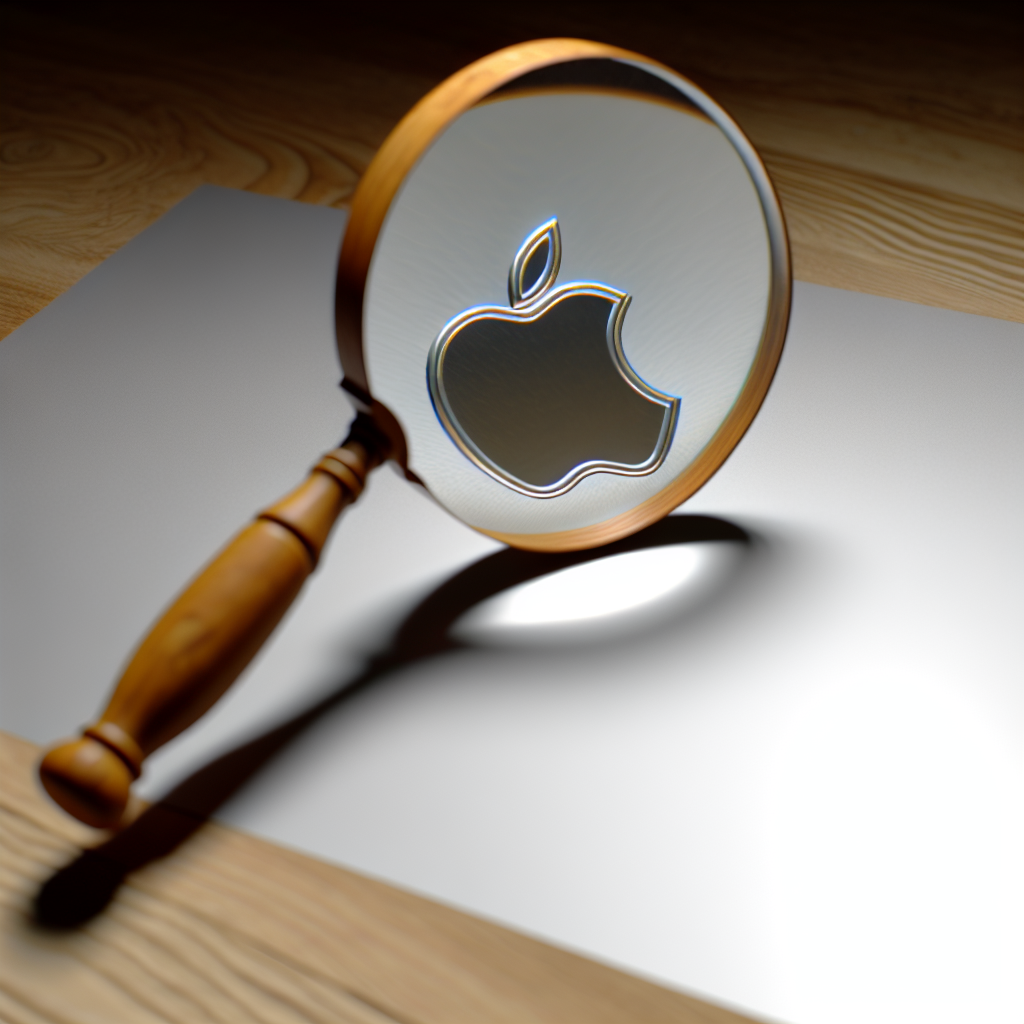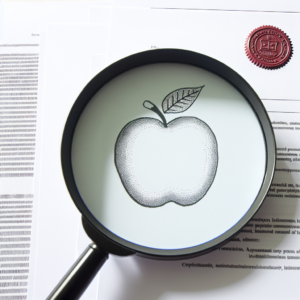What's on Tim Cook's plate as the US Department of Justice files a lawsuit against Apple for monopolistic practices and control over the future?
The lawsuit claims that Apple has control over more than 70% of the revenue in the US smartphone market. Apple dominates the high-end smartphone market and allegedly uses unlawful and anticompetitive tactics to keep its stronghold.
The American Justice Department, together with the chief legal officers of 16 states and the District of Columbia, have lodged a lawsuit against Apple in a federal court. The litigation accuses Apple of monopolizing the high-end smartphone market and employing a range of unlawful and anti-competitive tactics to uphold its supremacy.
The crux of the lawsuit lies in Apple's dominance in the US smartphone market, where it holds more than 70% of the market share. This, along with Apple's tight grip on its app universe, is what has prompted the DoJ to initiate this legal action.
The lawsuit further claims that Apple's stance enabled it to exert pressure on both developers and consumers to generate more income.
The anticipation of the antitrust lawsuit submission has been building for a while. The lawsuit, together with the communication from the DOJ and the group of states, is aimed directly at the iPhone. The DoJ views this case as a critical turning point for the future of technology.
The Department of Justice contends that Apple's rise to power, partially aided by the 1998 antitrust lawsuit against Microsoft, indicates the necessity for another significant antitrust action to protect the future of technology and innovation.
The lawsuit primarily focuses on the argument that Apple's strict regulation of its products, including both hardware and software, creates barriers for competitors trying to penetrate the market and limits customers' choices for alternatives.
This action follows closely on the heels of the European Commission's decision to levy a substantial fine of €1.8 billion ($1.95 billion) on Apple. The fine pertains to analogous apprehensions about the company's methods involving music streaming services.
In a statement aired on CNN, Attorney General Merrick Garland expressed that Apple's strategies not only restrict competition but also cause consumers, developers and other interested parties to pay higher prices for their services.
The legal action further claims that Apple has illegally taken over the software application industry. It accuses the company of exploiting its predominant influence over iOS to suppress creativity and block the rise of rival apps and services.
The complaint details allegations that Apple has hindered the incorporation of competitive technologies like Android messages into its devices and has also blocked competing payment platforms. The suit argues that Apple, by suppressing innovation, fortifies its monopoly in the smartphone market, not by improving user experience, but by discouraging potential challenges to its market superiority.
The ongoing antitrust case against Apple shares strong resemblance to the Department of Justice's (DOJ) previous antitrust lawsuit against Microsoft in the 1990s, regardless of the complex strategies and their lawfulness. Attorney General Merrick Garland himself has noted these similarities, emphasizing that both cases deal with claims of using market superiority to suppress competition.
Nonetheless, there's a significant difference between the two scenarios: Microsoft undoubtedly had a monopoly in the market for personal computer operating systems, whereas Apple's monopolistic standing is not as definitive.
Garland stressed in his media briefing that owning a monopoly is not inherently against the law; it's the strategies used to sustain it that could breach anti-competition regulations. To validate these accusations, it's crucial to show that the accused holds enough market influence to hinder rival businesses.
Before the advent of smartphones, Microsoft Windows held a significant majority of the market share, accounting for over 90% in the operating systems for personal computers. It was so dominant that it was estimated that around 97% of all computing devices were running on Microsoft operating systems by the year 2000.
Even though the Microsoft monopoly lawsuit ended with varying results, where several penalties, including the suggested split of Microsoft, were reversed during the appeal phase, the established facts of the case indisputably proved Microsoft's monopoly dominance. This set the stage for a plethora of ensuing private legal actions, the majority of which Microsoft resolved through settlements.
On the other hand, when looking solely at the numbers, Apple's market share is significantly less than what Microsoft used to dominate.
What's the extent of Apple's predicament? The Department of Justice (DOJ) alleges in their legal action against Apple that the tech giant holds a massive 70% of the US smartphone market in terms of revenue. This puts Apple considerably in front of its nearest rival, Samsung, which possesses a market share of 18%.
The Department of Justice (DOJ) contends that even though Apple's global market share is only 23%, compared to Samsung's 16%, the American market is especially significant because of the way customers buy through service providers and the existing regulations. Further, the DOJ points out the popularity of iPhones among younger users and wealthier households, suggesting Apple's strong position in the market.
The authorities contend that Apple's dominance in the smartphone and high-end smartphone sectors is tantamount to monopolistic control, largely because of the obstacles for newcomers in the market. They suggest that current smartphone users, many of whom are iPhone owners, tend to stick with Apple when it's time for an upgrade.
The Department of Justice highlights supposed strategies used by Apple, like differentiating between blue and green text message bubbles for iPhone and Android users, and directing consumers to use Apple's exclusive FaceTime service, as instances of created obstacles preventing users from transitioning to other devices.
The Department of Justice argues that shifting involves expenses and difficulties such as getting accustomed to a different interface, buying new applications, and moving data.
Additionally, the Department of Justice highlights a range of technical obstacles to enter the market, such as the acquisition of high-priced elements, the creation of complex hardware and software, and the formation of distribution contracts.
What is Apple's strategy to counter this? Apple has responded to the much-awaited Department of Justice lawsuit, stating that the lawsuit poses a risk to the company's reputation. In a public announcement, Apple expresses its determination to strongly protect itself against the claims made in the lawsuit.
At Apple, our daily mission is to create technology that resonates with people—by designing products that integrate smoothly, safeguard individual's privacy and security, and offer a unique user experience. This legal dispute is a threat to our identity and the distinguishing values that make Apple products stand out in highly competitive markets. If the lawsuit prevails, it could interfere with our capacity to create the technology that people have come to anticipate from Apple—where hardware, software, and services overlap. It could also establish a risky precedent, allowing the government excessive involvement in people's technology design. We are of the firm belief that this lawsuit is incorrect in its facts and legal basis, and we will robustly stand against it.
Apple has the potential to refute the assertions made by the Department of Justice by claiming that its dedication to making distinct and integrated products does not mean it's engaging in unfair competition. The firm could suggest that providing a cohesive platform with pre-installed apps designed for particular features, like internet browsing and video calls, improves the usability and accessibility, which in turn attracts more customers. Apple could stress that people opt for its products not because they have difficulties switching to Android, but because they truly like what the Apple environment offers.
Moreover, Apple could emphasize the considerable resources it has poured into building strong supply chains, creating alliances with carriers and developers, and nurturing industry relations over the last 15 years. The corporation could challenge why it should be penalized now for the conscientious efforts it has made to secure its dominant place in the market.
The lawsuit makes certain accusations, to which Apple could respond by saying that its practices, like restricting app expansion or making sure non-Apple smartwatches are compatible, are geared towards preserving product quality and safety, not suppressing competitors. The firm might argue that elements such as CarPlay, FaceTime, and news and entertainment subscriptions are innovative additions meant to improve customer experience and offer extra benefits to consumers, instead of being tactics to hinder competition.
Fundamentally, Apple could attempt to portray its business strategies as genuine initiatives to advance and enhance its products, instead of as monopolistic maneuvers designed to eliminate competitors from the market.
Look for us on YouTube
Headline Programs
Connected Articles
Elaborated: The numerous lawsuits that are hurting Apple
Meta, Microsoft, and X are joining forces to combat Apple's initiative to open up the App Store to other external payment methods
Apple has at last released its MM1, a multimodal AI model for generating text and images
The upcoming Apple Watch edition is set to include a long-awaited feature
Detailed: The multiple lawsuits negatively impacting Apple
Meta, Microsoft, X are collaborating to resist Apple's move to introduce other external payment options to the App Store
Apple has finally introduced MM1, its multimodal AI model for creating text and images
The forthcoming generation of Apple Watch will finally include a feature that everyone has been eagerly anticipating
Available on YouTube
Firstpost holds all rights, protected by copyright, as of 2024

























+ There are no comments
Add yours